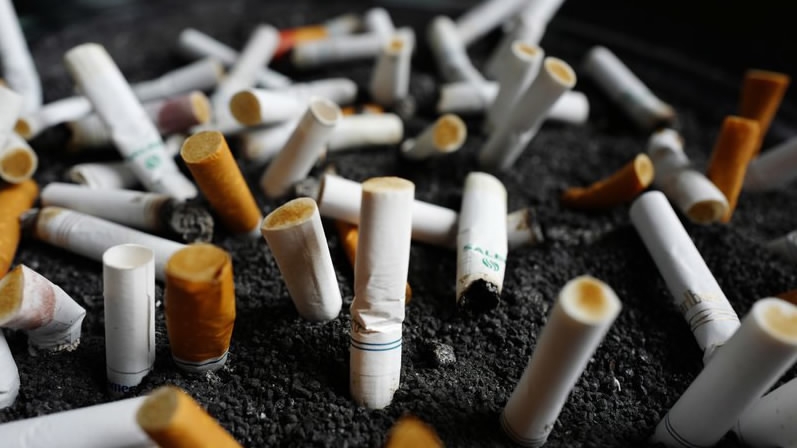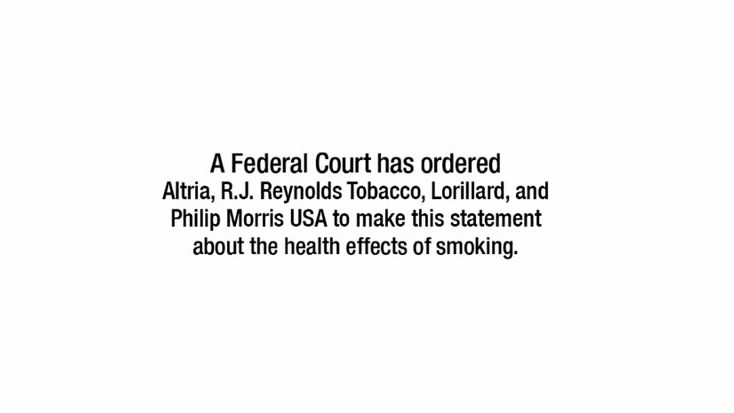
Tech & Sci
11:05, 22-Nov-2017
Big Tobacco’s anti-smoking ads begin after decade of delay

Decades after they were banned from the airwaves, Big Tobacco companies return to primetime television this weekend – but not by choice.
Under court order, the tobacco industry for the first time will be forced to advertise the deadly, addictive effects of smoking, more than 11 years after a judge ruled that the companies had misled the public about the dangers of cigarettes.
But years of legal pushback by the industry over every detail means the ads will be less hard-hitting than what was proposed. Tobacco control experts say the campaign – built around network TV and newspapers – will not reach people when they are young and most likely to start smoking.

Screen shot from a commercial that will air on television starting the week of November 26. /Photo via AP
Screen shot from a commercial that will air on television starting the week of November 26. /Photo via AP
“Their legal strategy is always obstruct, delay, create confusion and buy more time,” said Ruth Malone, of the University of California, San Francisco, who has studied the industry for 20 years. “So by the time this was finally settled, newspapers have a much smaller readership, and nowadays, who watches network TV?”
The new spots, which begin Sunday, lay out the toll of smoking in blunt text and voiceover statements: “More people die every year from smoking than from murder, AIDS, suicide, drugs, car crashes and alcohol, combined.”
Companies will also acknowledge their role in making cigarettes addictive: “Cigarette companies intentionally designed cigarettes with enough nicotine to create and sustain addiction.”
Smoking remains the nation’s leading preventable cause of death and illness, causing more than 480,000 deaths each year, even though smoking rates have been declining for decades. Last year, the adult smoking rate hit a new low of 15 percent, according to government figures. That’s down from the 42 percent of adults who smoked in the mid-1960s.
Experts attribute the decline to smoking bans, cigarette taxes and anti-smoking campaigns by both nonprofit groups like the American Cancer Society and the federal government.
Source(s): AP

SITEMAP
Copyright © 2018 CGTN. Beijing ICP prepared NO.16065310-3
Copyright © 2018 CGTN. Beijing ICP prepared NO.16065310-3